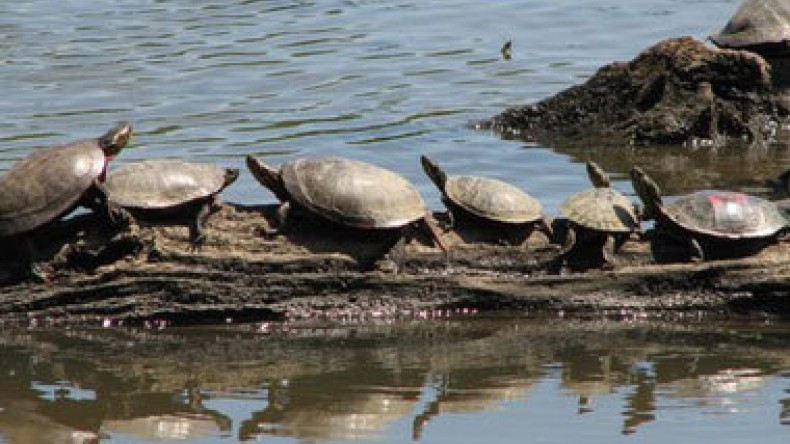
Dispersal 'key to reptile survival'
Reptiles whose gender depends on temperature must become more widespread to survive the effects of climate change, according to new research. Temperature of egg incubation decides gender in some reptile species, such as alligators and some turtles, the BBC reports.
Australian researchers found that in populations where more females are produced, male dispersal is vital.
Species unable to disperse could become extinct from some areas, suggested the research reported in BMC Ecology.
Alligators, some turtles, and the tuatara - found only in New Zealand - all produce offspring whose gender is determined by temperature.
These species are considered to be especially vulnerable to climate warming, because at higher temperatures they produce only one sex.
Previous studies have suggested that the best way for reptiles to respond is to alter the temperature of their nest by seeking shaded areas, digging deeper nests and nesting earlier in the season.
But the authors say their study is the first to demonstrate that dispersal by the sex that occurs least in a population may be just as important, if not more so, in compensating for the effects of climate change.
They used a simulation model to examine the effects of temperature, juvenile survival, offspring sex ratio and dispersal on populations of reptiles species with temperature-dependent sex determination (TSD).
They then compared the results with those for species with genotypic sex determination (GSD).
They found dispersal by the rarer sex was more important to population survival in TSD reptiles than in GSD reptiles.
The model was based on species where females are produced at higher temperatures.
The authors say it could also be applied to species where males are produced at higher temperatures such as the tuatara, which has been predicted to be on the brink of extinction by the end of the 21st Century.
"We believe that our findings are timely and make a significant contribution to the field. This is the first study that demonstrates the importance of dispersal in populations of reptile species with offspring sex ratios determined by climate," lead author Maria Boyle from the University of Canberra, Australia told BBC Nature.
Newsfeed
Videos






























